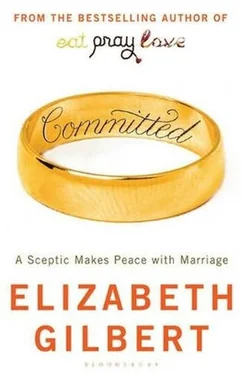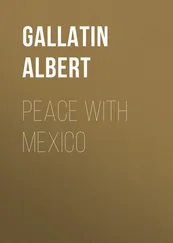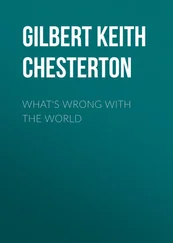Even Felipe and I-two dodgy survivors of divorce who prided ourselves on a certain degree of bohemian autonomy-had started creating a little world for ourselves that looked suspiciously like marriage long before the immigration authorities ever got involved. Before we’d ever heard of Officer Tom, we had been living together, making plans together, sleeping together, sharing resources, building lives around each other, excluding other people from our relationship-and what do you call that, if not marriage? We’d even had a ceremony to seal our fidelity. (Hell, we’d had two!) We were shaping our lives in that particular form of partnership because we yearned for something. As so many of us do. We yearn for private intimacy even though it’s emotionally risky. We yearn for private intimacy even when we suck at it. We yearn for private intimacy even when it’s illegal for us to love the person we love. We yearn for private intimacy even when we are told that we should yearn for something else, something finer, something nobler. We just keep on yearning for private intimacy, and for our own deeply personal set of reasons. Nobody has ever been able to completely sort out that mystery, and nobody has ever been able to stop us from wanting it.
As Ferdinand Mount writes, “Despite all official efforts to downgrade the family, to reduce its role and even to stamp it out, men and women obstinately continue not merely to mate and produce children but to insist on living in pairs together.” (And I would add to this thought, by the way, that men and men also keep insisting on living in pairs together. And that women and women also keep insisting on living in pairs together. All of which just drives the authorities crazier still.)
Faced with this reality, repressive authorities always eventually surrender in the end, bowing at last to the inevitability of human partnership. But they don’t go down without a fight, those pesky powers-that-be. There is a pattern to their surrender, a pattern that Mount suggests is consistent across Western history. First, the authorities slowly glean that they are unable to stop people from choosing loyalty to a partner over allegiance to some higher cause, and that marriage is therefore not going away. But once they have given up trying to eliminate marriage, the authorities now attempt to control it by establishing all sorts of restrictive laws and limits around the custom. When the church fathers finally surrendered to matrimony’s existence in the Middle Ages, for instance, they immediately heaped on the institution a giant pile of tough new conditions: There would be no divorce; marriage would now be an inviolable holy sacrament; nobody would be allowed to marry outside of a priest’s purview; women must bow to the laws of coverture; etc. And then the church went a little crazy, trying to enforce all this control over marriage, right down to the most intimate level of private marital sexuality.
In Florence during the 1600s, for instance, a monk (ergo celibate) named Brother Cherubino was entrusted with the extraordinary task of writing a handbook for Christian husbands and wives that would clarify rules for what was considered acceptable sexual intercourse within Christian marriage and what was not. “Sexual activity,” Brother Cherubino instructed, “should not involve the eyes, nose, ears, tongue, or any other part of the body that is in no way necessary for procreation.” The wife could look at her husband’s private parts, but only if he was sick, and not because it was exciting, and “never allow yourself, woman, to be seen in the nude by your husband.” And while it was permissible for Christians to bathe every now and again, it was, of course, terribly wicked to try to make yourself smell good in order to be sexually attractive to your spouse. Also, you must never kiss your spouse using your tongue. Not anywhere! “The devil knows how to do so much between husband and wife,” Brother Cherubino lamented. “He makes them touch and kiss not only the honest parts but the dishonest ones as well. Even just to think about it, I am overwhelmed by horror, fright and bewilderment…”
Of course, as far as the church was concerned, the most horrible, frightening, and bewildering thing of all was that the matrimonial bed was so private and therefore so ultimately uncontrollable. Not even the most vigilant of Florentine monks could stop the explorations of two private tongues in one private bedroom in the middle of the night. Nor could any one monk control what all those tongues were talking about once the lovemaking was over-and this was perhaps the most threatening reality of all. Even in that most repressive age, once the doors were closed and the people could make their own choices, each couple defined its own terms of intimate expression.
In the end, the couples tend to win.
Once the authorities have failed at eliminating marriage, and once they have failed at controlling marriage, they give up and embrace the matrimonial tradition completely. (Amusingly, Ferdinand Mount calls this the signing of a “one-sided peace treaty.”) But then comes an even more curious stage: Like clockwork, the powers-that-be will now try to co-opt the notion of matrimony, going so far as to pretend that they invented marriage in the first place. This is what conservative Christian leadership has been doing in the Western world for several centuries now-acting as though they personally created the whole tradition of marriage and family values when in fact their religion began with a quite serious attack on marriage and family values.
This is the pattern that happened with the Soviets and with the twentieth-century Chinese, too. First, the communists tried to eliminate marriage; then they tried to control marriage; then they fabricated an entirely new mythology claiming that “the family” had always been the backbone of good communistic society anyhow, don’t you know.
Meanwhile, throughout all this contorted history, throughout all the thrashing and frothing of dictators and despots and priests and bullies, people just keep on getting married-or whatever you want to call it at any given time. Dysfunctional and disruptive and ill-advised though their unions may be-or even secret, illegal, unnamed, and renamed-people continue to insist on merging with each other on their own terms. They cope with all the changing laws and work around all the limiting restrictions of the day in order to get what they want. Or they flat-out ignore all the limiting restrictions of the day! As one Anglican minister in the American colony of Maryland complained in 1750, if he had been forced to recognize as “married” only those couples who had legally sealed their vows in a church, he would have had to “bastardize nine-tenths of the People in this County.”
People don’t wait for permission; they go ahead and create what they need. Even African slaves in early America invented a profoundly subversive form of marriage called the “besom wedding,” in which a couple jumped over a broomstick stuck aslant in a doorway and called themselves married. And nobody could stop those slaves from making this hidden commitment in a moment of stolen invisibility.
Seen in this light, then, the whole notion of Western marriage changes for me-changes to a degree that feels quietly and personally revolutionary. It’s as if the entire historical picture shifts one delicate inch, and suddenly everything aligns itself into a different shape. Suddenly, legal matrimony starts to look less like an institution (a strict, immovable, hidebound, and dehumanizing system imposed by powerful authorities on helpless individuals) and starts to look more like a rather desperate concession (a scramble by helpless authorities to monitor the unmanageable behavior of two awfully powerful individuals).
Читать дальше












